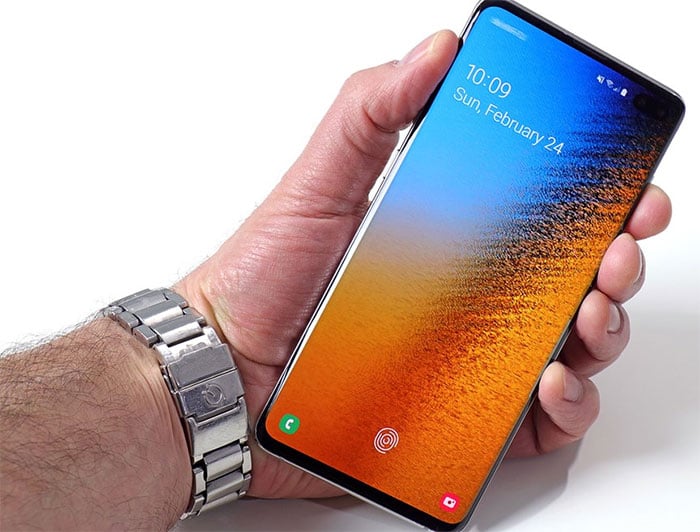Some Galaxy S10 Users Confirm Severe Battery Drain After VOIP Calls

By all accounts, the Galaxy S10 is an excellent smartphone. It has one of the best displays—if not THE best, based on DisplayMate's testing—on the market, it is plenty fast, and the phone's camera performance is worthy of a flagship handset. But like anything else in this world, it's not perfect. One of the phone's imperfections is due to an apparent bug that is messing with battery life under certain conditions.
In our own hands-on testing of the larger Galaxy S10+, we found battery life to be excellent overall, coming in well ahead of the previous generation Galaxy S9+, and handsets like Huawei's Mate 10 Pro and the Moto Z2 Force. It wasn't able to burst ahead of the Galaxy Note 9, the current battery life champion (among handsets we have tested), but the 4,100mAh battery inside the Galaxy S10+ is doing its job. Well, mostly.
Over on the XDA Developers forum, an issue has been raised about a bug in the proximity sensor. Some users have complained that after placing a voice-over-IP (VoIP) call, their Galaxy S10 handset fails to enter a deep state in standby mode.
For those who are affected by this, it happens when using programs like Skype or WhatsApp to place a call. Since the Galaxy S10 never enters a deep sleep afterward, battery life drains much faster than it should. This the case until restarting the phone.
"I can confirm that... After finding why I have massive standby drain and blame few apps for that, now I know this is an issue with Voip calls. Reported trough Members app already," a user wrote.
Several others also chimed in with similar complaints. The one common thread that ties them together is they all seem to be using overseas versions of the Galaxy S10 powered by Samsung's own Exynos 9820 processor—models running on Qualcomm's Snapdragon 855 hardware appear to be unaffected.
It's a safe bet that Samsung will not let this issue go unresolved, so we fully expect a future software update to fix the quirk. In the meantime, users who are affected by this can either restart their phones after using a VoIP app, or avoid using them altogether.

